For Women's History Month: Q&A with scientific leaders
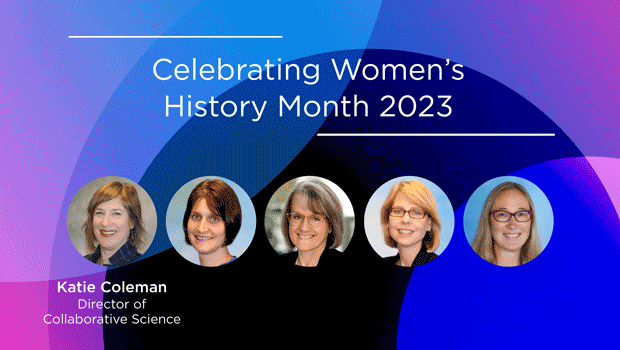
KPWHRI’s executive director and scientific division leaders share their career paths, advice
March is Women's History Month and we're celebrating by talking with some of our institute's directors. The executive director of Kaiser Permanente Washington Health Research Institute (KPWHRI) is Rita Mangione-Smith, MD, MPH, who is also vice president for research and health care innovation for Kaiser Permanente Washington, led by regional president Angela Dowling. Among KPWHRI's 11 directors are 9 women, with women leading all 4 scientific divisions.
While recognizing that equity efforts extend beyond gender and are an ongoing endeavor, we're taking a moment to observe this month by asking Mangione-Smith and the directors of KPWHRI's scientific divisions: What were your career paths? What guidance do you have for people early in their careers?
Rita Mangione-Smith, MD, MPH, KPWHRI Executive Director
 After completing medical school and pediatric residency, it was my firsthand experiences caring for patients that led me to pursue training in health services research through the Robert Wood Johnson Foundation Clinical Scholars Program. My passion for addressing quality gaps in health care has driven both my own research agenda and my desire to support and foster the careers of others doing this critically important work. By taking on progressively larger leadership positions, first as a division chief in the University of Washington Department of Pediatrics and now as the KPWHRI executive director, I have been able to support an amazing array of researchers who are helping to make broadscale improvements in health care for some of our most vulnerable populations.
After completing medical school and pediatric residency, it was my firsthand experiences caring for patients that led me to pursue training in health services research through the Robert Wood Johnson Foundation Clinical Scholars Program. My passion for addressing quality gaps in health care has driven both my own research agenda and my desire to support and foster the careers of others doing this critically important work. By taking on progressively larger leadership positions, first as a division chief in the University of Washington Department of Pediatrics and now as the KPWHRI executive director, I have been able to support an amazing array of researchers who are helping to make broadscale improvements in health care for some of our most vulnerable populations.
The best advice I can give is to develop a professional mission statement early on in your career and allow it to be your North Star. It’s also so important to find at least one (and hopefully more than one) trusted professional mentor. Both of these things really helped me to make tough decisions at different junctures of my career. Most importantly, do what you love! Your professional career is such a large part of your life and it’s so important to enjoy the journey.
Katie Coleman, MSPH, Director, Collaborative Science
 My interest in public health and health policy goes back to my high school days volunteering with mobile medical groups in the sugar cane fields in the Dominican Republic. Since then, I've known I wanted to be involved in ensuring everyone gets the health care they need. I never expected that desire would eventually lead to supporting collaborative science at KPWHRI or its Center for Accelerating Care Transformation or co-leading Kaiser Permanente's Social Needs Network for Evaluation and Training! I embraced these opportunities as they came because they are helping me achieve my overall career goal of improving access to and delivery of health care, particularly primary care.
My interest in public health and health policy goes back to my high school days volunteering with mobile medical groups in the sugar cane fields in the Dominican Republic. Since then, I've known I wanted to be involved in ensuring everyone gets the health care they need. I never expected that desire would eventually lead to supporting collaborative science at KPWHRI or its Center for Accelerating Care Transformation or co-leading Kaiser Permanente's Social Needs Network for Evaluation and Training! I embraced these opportunities as they came because they are helping me achieve my overall career goal of improving access to and delivery of health care, particularly primary care.
You spend a lot of time at work — do what matters and what fills you up and gives you energy! Be open to twists and turns. Work with good people on good initiatives, which will look different over the years, but when those 2 ingredients have been in place, things have worked out for me. Stay curious. There’s almost always something to learn no matter where you find yourself. Enjoy the journey.
Maggie Jones, MPH, Director, Evaluation Science
 My first exposure to public health was a job working for a small nonprofit in Minneapolis while studying business and marketing in undergrad. The nonprofit worked with health care and public health institutions to build more culturally competent practices to serve the immigrant and refugee communities in the Twin Cities. Through this work, I saw the power of data to improve practices and systems in a way that had a real impact on people’s lives, and as a result I pursued a degree in public health. I’ve continued to build on those early learnings through my work at the Center for Community Health and Evaluation at KPWHRI, which uses a collaborative and practical approach to evaluation to work with organizations to drive change and have a positive impact on communities across the United States.
My first exposure to public health was a job working for a small nonprofit in Minneapolis while studying business and marketing in undergrad. The nonprofit worked with health care and public health institutions to build more culturally competent practices to serve the immigrant and refugee communities in the Twin Cities. Through this work, I saw the power of data to improve practices and systems in a way that had a real impact on people’s lives, and as a result I pursued a degree in public health. I’ve continued to build on those early learnings through my work at the Center for Community Health and Evaluation at KPWHRI, which uses a collaborative and practical approach to evaluation to work with organizations to drive change and have a positive impact on communities across the United States.
When I think about my career and the decisions I’ve made, the 2 things that have always driven me have been finding work that makes a difference and working with people I look forward to seeing every day. So, my advice is to explore different pathways and take opportunities that excite you until you land on something you find rewarding. But work is also about the people you work with, so look for a team — a work community — that you can support and that supports you.
Jennifer McClure, PhD, Director, Investigative Science
 I planned to become a physician until my professor introduced me to a new field called Health Psychology (now more commonly known as Behavioral Medicine) that used psychological principles to prevent, treat, and manage illness. It was a perfect fit, so I pursued my doctorate in clinical psychology and began studying the effects of stress on health, while also working as a clinician in several public and private hospitals. But I soon realized I could have a greater impact as a full-time scientist, especially if I focused on disease prevention. So, I accepted a postdoctoral fellowship in preventive oncology at MD Anderson Cancer Center and then a research associate position. Through an unexpected twist of fate, I was soon invited to join the Group Health Center for Health Studies as a senior research associate. It was the ideal location for my newly awarded National Cancer Institute career development award. Over the next 24 years, the center’s name changed twice (to Group Health Research Institute and then KPWHRI) and my title changed at least 6 times as I moved into and up the investigator career ladder and later joined the leadership team.
I planned to become a physician until my professor introduced me to a new field called Health Psychology (now more commonly known as Behavioral Medicine) that used psychological principles to prevent, treat, and manage illness. It was a perfect fit, so I pursued my doctorate in clinical psychology and began studying the effects of stress on health, while also working as a clinician in several public and private hospitals. But I soon realized I could have a greater impact as a full-time scientist, especially if I focused on disease prevention. So, I accepted a postdoctoral fellowship in preventive oncology at MD Anderson Cancer Center and then a research associate position. Through an unexpected twist of fate, I was soon invited to join the Group Health Center for Health Studies as a senior research associate. It was the ideal location for my newly awarded National Cancer Institute career development award. Over the next 24 years, the center’s name changed twice (to Group Health Research Institute and then KPWHRI) and my title changed at least 6 times as I moved into and up the investigator career ladder and later joined the leadership team.
I have 3 pieces of key advice for people early in their careers. First, don’t be afraid to get out of your comfort zone. Opportunities that seem uncomfortable at first can lead to the most personal and professional growth. Second, say yes to lots of different opportunities. You never know which will open new and exciting doors. Finally, as a professor once advised me, academia is notorious for promoting people into leadership roles based on their skills and accomplishments as teachers, researchers, or clinicians, not their ability to lead. So, take every opportunity to learn leadership skills as you grow your career, so you’re prepared if/when you get the call to lead.
Jennifer Nelson, PhD, Director, Biostatistics
 I lost my younger brother to cancer when I was 16 and have wanted to improve medicine ever since. I knew I didn’t want to be a practicing physician, and thanks to a close childhood family friend (who happened to be chair of the Biostatistics Department at the University of Iowa), I learned early on that biostatistics was a way I could apply my math skills to help advance medical research. I feel very lucky that my career eventually landed me here at KPWHRI, where biostatisticians truly have opportunities to make a real-world impact in people’s lives.
I lost my younger brother to cancer when I was 16 and have wanted to improve medicine ever since. I knew I didn’t want to be a practicing physician, and thanks to a close childhood family friend (who happened to be chair of the Biostatistics Department at the University of Iowa), I learned early on that biostatistics was a way I could apply my math skills to help advance medical research. I feel very lucky that my career eventually landed me here at KPWHRI, where biostatisticians truly have opportunities to make a real-world impact in people’s lives.
To early-career scientists, I say follow your interests, do something that matters to you, seek out strong mentors, and build a community that will support you. I've received excellent mentoring and, in turn, had the privilege of training many biostatisticians and researchers at KPWHRI who are now my valued scientific partners and good friends.
By Chris Tachibana
News
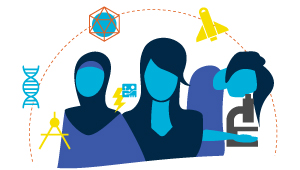
Celebrating the work of women in STEM
On International Women's Day, Washington STEM highlighted the work and career path of Lisa Jackson, MD, MPH.
News
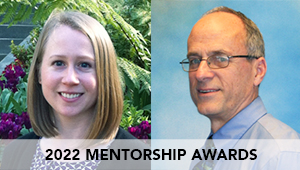
2022 mentorship awards to Anne Renz and Allen Cheadle
Recognizing outstanding support of personal and professional growth and commitment to values and inclusion.
Learning health systems
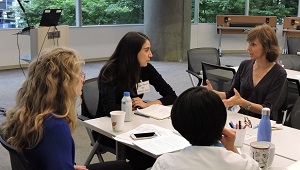
Scholars and mentors strengthen bridge between research and care delivery
New paper shows mentorship boosts evidence-based, patient-centered care.
News
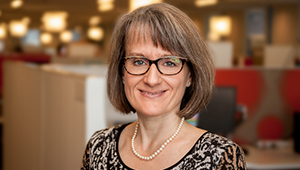
Top pediatrician-scientist chosen to head KPWHRI
Rita Mangione-Smith brings expertise in quality improvement and health systems from leadership posts at Seatte Children's and UW Medicine.


